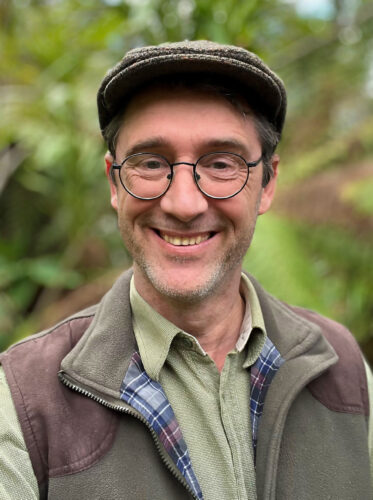Professor Justin A. Welbergen

Professor of Animal Ecology, Hawkesbury Institute for the Environment, Western Sydney University and President of the Australasian Bat Society.
See Professor Welbergen’s full research profile here.
Bio
Justin Welbergen is professor of animal ecology at the Hawkesbury Institute for the Environment at Western Sydney University. With his Lab of Animal Ecology, he works on a range of subjects in whole organism biology, focusing on the ways organisms respond adaptively to changes in their social, ecological and physical environment.
Professor Welbergen’s applied research interests are primarily in conservation and climate change biology. Here much of his work is about informing the conservation management of threatened bats and birds, about building a mechanistic understanding of the vulnerability of biodiversity to extreme weather and climate events, and about prioritising areas in the landscape for management and conservation in the context of environmental change.
Recently, Professor Welbergen has made important progress using emerging technologies, such as large-scale animal tracking, passive acoustic monitoring, and drone and radar remote sensing, for understanding the spatiotemporal dynamics of populations, from local to landscape scales, to enable more effective wildlife management trans-jurisdictionally.
Research outputs linked to policy change and decision-making
Professor Welbergen’s academic work results in identifiable benefits outside of academia, particularly for conservation and management of wildlife and wildlife habitat.
At James Cook University (2011–13), he led the Gap analysis of environmental research needs in the Australian Wet Tropics. This gap analysis informed the allocation of funds under the Tropical Ecosystems Hub ($28.5 million and $33.4 million co-investment) from the National Environmental Research Programme (NERP). He also led NERP Project 7.3: Climate change and impact of extreme events on Australia’s Wet Tropics biodiversity. This project was designed to provide information and tools to allow the management agency to predict and limit the impact of extreme events on the Wet Tropics’ endemic biodiversity. While at James Cook University, he further contributed to 2 major reports from the National Climate Change Adaptation Facility: Climate change refugia for terrestrial biodiversity in Australia and Climate change adaptation strategies for Australian birds.
At Western Sydney University (2014–present), he has been running a range of research programs jointly with management agencies from various government sectors, including on the management and conservation of threatened flying-foxes, microbats, and island endemic birds (see here for details). By design, these programs directly contribute to better coordinated, evidence-based wildlife management by local and state government and other stakeholders. One concrete example of this is the online Flying-fox heat stress forecaster that he developed with collaborators from the University of Melbourne, the Bureau of Meteorology and CSIRO, and that continues to be used throughout Australia each summer by hundreds of wildlife carers, land managers, and public health officials to cope with mass flying-fox mortality events resulting from extreme heat.
Current academic employment and positions
Highest qualification
Major prizes, medals and honours
Current roles on government or regional organisation committees
Current roles in non-government groups or networks
My projects (in addition to the below)